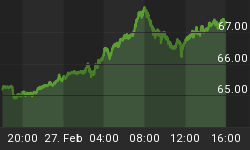For better or worse, any support to Greece is a political matter. However, in the absence of a political process, much of the focus has been on the European Central Bank (ECB): one of the few European institutions that has provided consistent and robust leadership throughout the financial crisis. ECB President Trichet has rightfully argued that it is not the ECB's role to provide financial assistance to Greece.
When a central bank veers into fiscal policy, it invites political backlash that erodes the credibility and effectiveness of that central bank. For this reason, it should not be the role of the ECB to enforce the stability and growth pact. In practice, however, all eyes have traditionally focused on the ECB, and Trichet in particular, to remind members of the eurozone to meet their obligations.
As such, it is not surprising that Trichet has had a hard time letting the political process run its course. Trichet has made no secret of his discomfort with International Monetary Fund (IMF) involvement in providing a backstop to Greece; his likely preference would have been a truly European solution spearheaded by Olli Rehn, head of the European Commission on Economic and Monetary Affairs. While the Commission has worked hard, the political realities make it clear that Germany has the biggest clout with regards to any assistance. From Germany's point of view, it is very prudent to have the IMF involved: IMF involvement will be most effective in resisting any watering down of terms imposed on aid, and IMF involvement may be more politically palatable - deflecting potential domestic political minefields. The European Commission can continue to play an important role in streamlining the processes; an improved communication process alone would greatly help to reduce future confusion, anxiety and political fallout associated with any similar situation.
As the ECB was drawn deeper into the discussion on bailouts, the ECB stepped up its political support for Greece: Trichet emphasized Greece's austerity measures were convincing, signaling to rating agencies the ECB's view that a further downgrade of Greek debt would not be appropriate. This was followed by calls from Bundesbank President Axel Weber to allow Greek debt to be accepted in refinancing operations independent of what rating agencies say; he proposed a "haircut", meaning fewer funds for lower rated Greek bonds would be provided than for more highly rated collateral. Soon after, Trichet caved and announced all eurozone sovereign collateral debt would be accepted, regardless of whether future downgrades occur.
In our assessment, the ECB must seize this opportunity to strengthen its collateral framework; otherwise, whenever there is a crisis, standards may be lowered once again. Weber's proposal should be taken a step further: sovereign debt provided as collateral for ECB refinancing operations could be subject to haircuts based on member countries' adherence to criteria in the stability and growth pact; a scoring system based on past, current and projected adherence could be employed. To avoid further boosting creative government accounting, the European Commission (rather than national governments) should calculate the metric. Of course, these standards would need periodic reviews to counter the inevitable "creativity" of investment bankers to work their way around any framework.
Integrating such a framework with a gradual scale may help reduce political bickering whenever a major threshold is reached. Note that the ECB can act to implement such a framework without a treaty change. Calls for "harsher punishments" for fiscally irresponsible member countries make good politics, but have no teeth, as a) history has shown that punishments may not be implemented, and b) might require a treaty change, which may be all but impossible.
The ECB is one of very few major central banks that have provided robust leadership throughout the financial crisis; the ECB must seize this opportunity, as sovereign debt issues are unlikely to go away. Ultimately, lowering Greece's cost of borrowing must be a result of working with market forces to reward the credibility of Greece's efforts, not those of the ECB or the European Union. If we stop here, bailouts will only make everyone poorer and drive up the cost of borrowing for the fiscally prudent.















